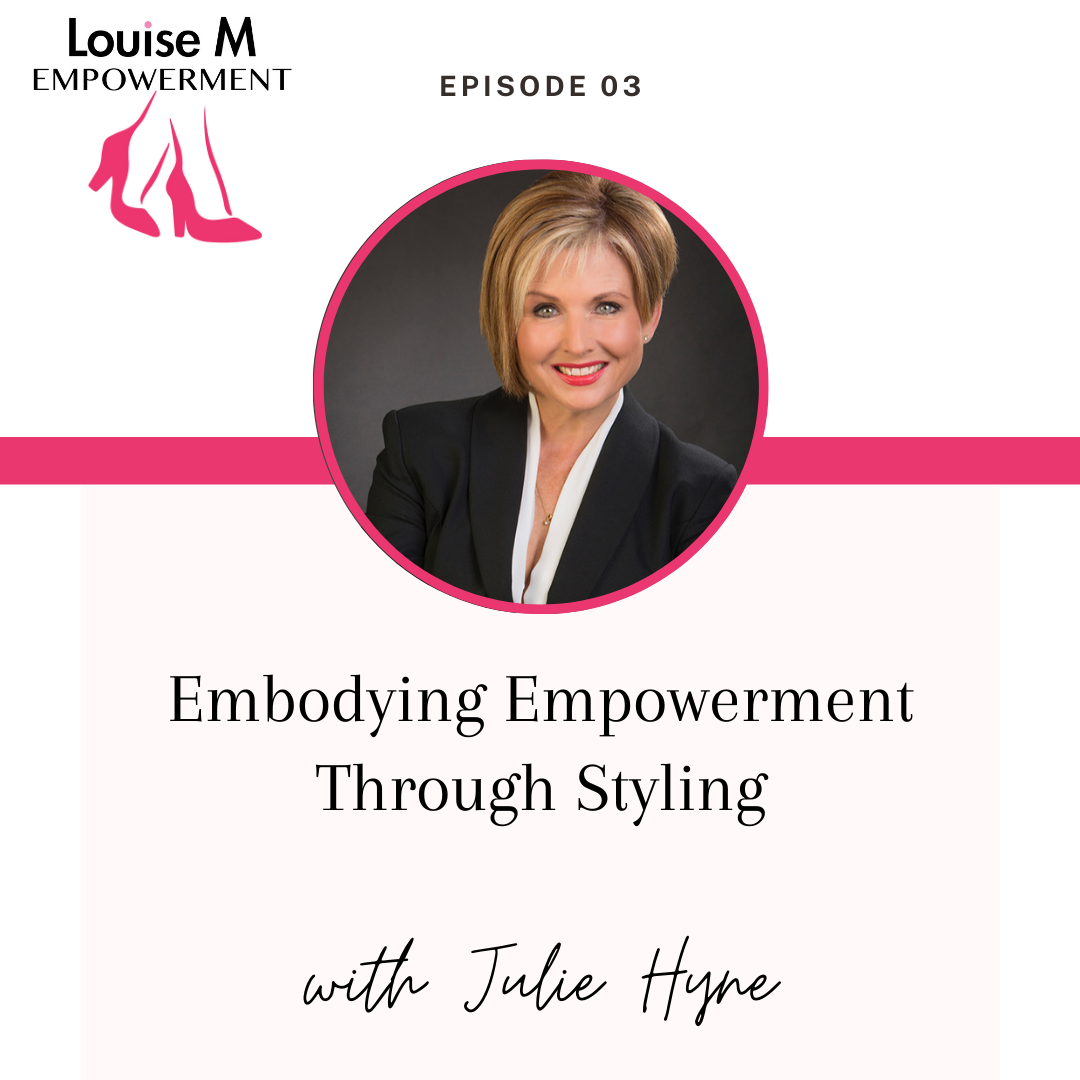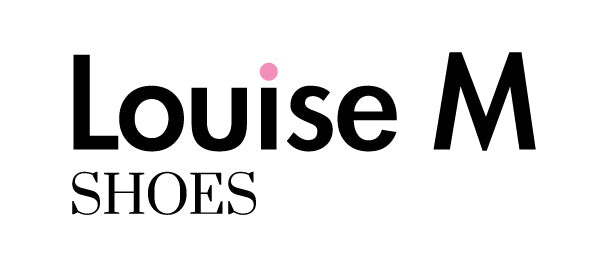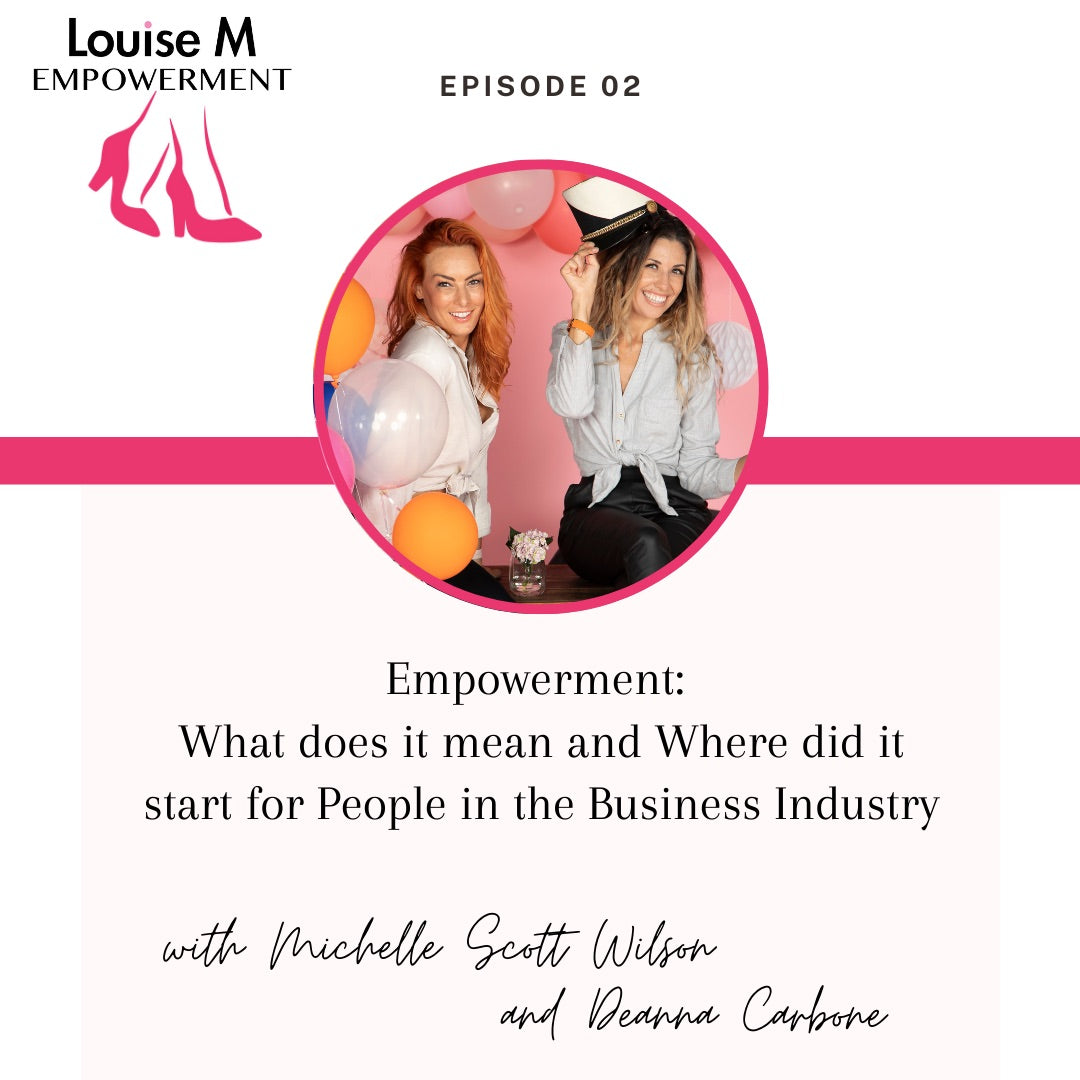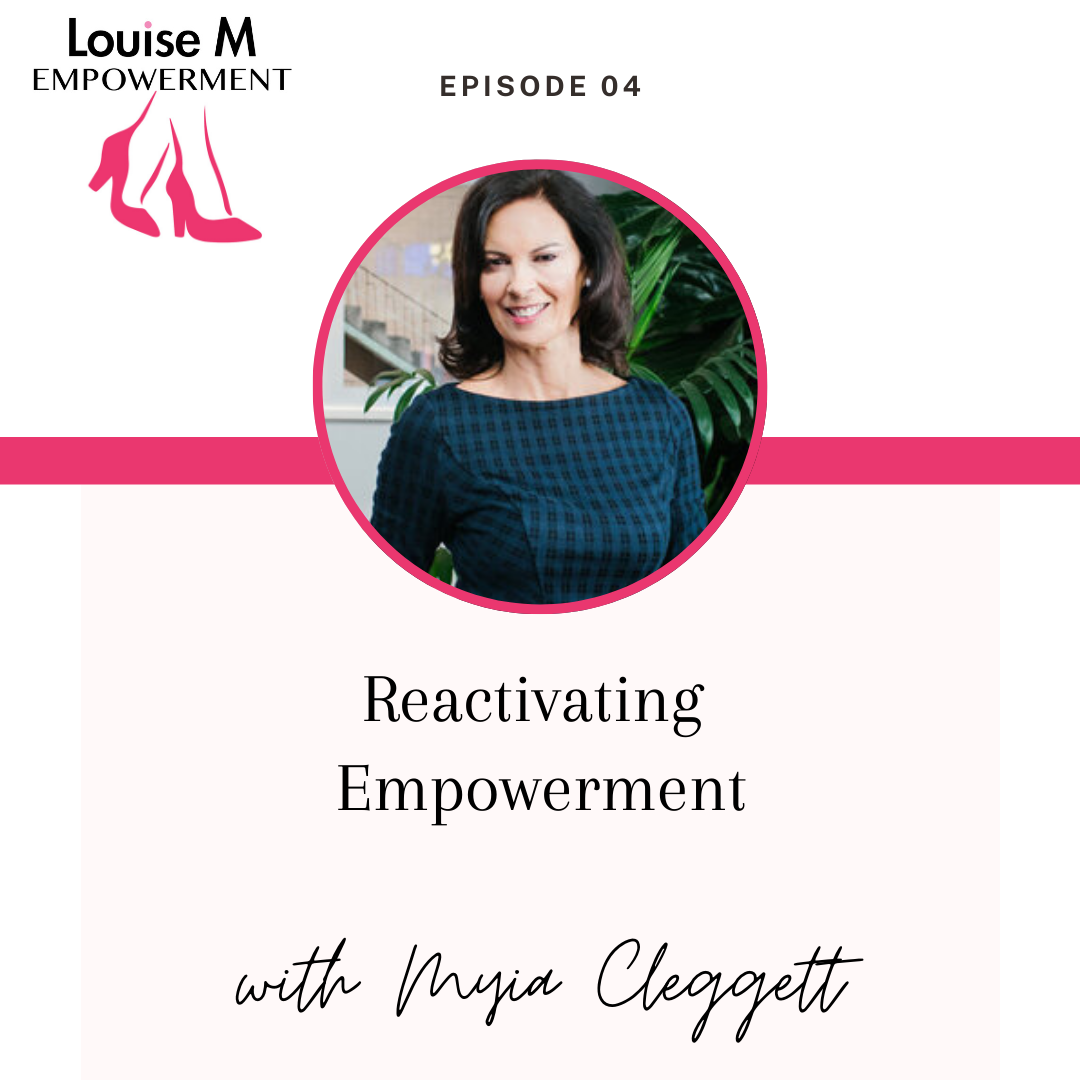
Louise M Empowerment Episode 3 Julie Hyne, Corporate Stylist
A woman can embody empowerment in various ways—one is through dressing up with styles that suit them and makes them feel confidently beautiful. However, many women struggle on finding a style that fits them. This is one of the struggles that most women face daily. To help, we present you with this podcast that will benefit you in finding your style through embracing femininity.
In today’s episode of Louise M Empowerment podcast, Julie Hyne, a mentor, and stylist will join us to talk about Embodying Empowerment Through Styling. Julie will discuss her journey as a stylist, as well as the different influences she encountered. She will also share her ways of encouraging women’s empowerment.
Click to listen to Julie on Apple Podcast
Transcript below.
Louise Matson (00:03):
Hello, Julie, thank you so much for joining me today on the Louisiana empowerment series.
Julie Hyne (00:09):
You are welcome Louise it's a pleasure.
Louise Matson (00:12):
Well, Julie, I'm really intrigued to know how our childhoods effected our feeling of empowerment as an adult, whether it did or didn't. So, firstly, what does empowerment mean to you? What's your definition of empowerment?
Julie Hyne (00:31):
It's an interesting question because as we were discussing before, yes, all the work I do is all about empowering women and really empowerment is about feeling confident and to feel confident, you have to feel like you have your act together that, you know, whether it's your, physical self and your emotional self, that everything is aligned. That means that you don't have to worry about anything else because you know exactly what it is you're doing and how you're going to go about doing it. So in it that spreads across your whole life really, it's the close to your personal life and it's also across your professional life as well. So what I try and do is give women that feeling of empowerment that they can accomplish anything.
Louise Matson (01:24):
Fantastic. I mean, it's such a gift. So let's delve into your childhood and whether you have any siblings and were you the oldest or the youngest? And do you think that had an effect on how you felt as a child, whether you, your parents encouraged you to, to go and achieve things, do things yes. You can do Julie or was it someone else in your childhood that encouraged you or was there no one?
Julie Hyne (01:55):
So as a child, Louise you might find this hard to believe, but I was really, really shy. I'm the middle of three girls. And so my eldest sister when I was very young decided to, took it upon herself to speak for me, act for me, do for me. So I retreated, I became very shy, very reserved, very timid. I didn't want to go anywhere without, you know, be left at kindergarten on my own or anything like that. I was, I was a bit of a basket case actually, as a child, it took me a long time to sort of grow out of that and develop some sort of identity that didn't happen until I really, until I went to secondary school. I went to a private girls grammar school and that's probably where I started to get some sort of sense of independence and identity with who I was.
Louise Matson (03:00):
So did you, did your mum realise that your older sister was doing that?
Julie Hyne (03:06):
Absolutely she did. And she used to tell her off all the time, let me speak for myself, do for myself, et cetera.
Louise Matson (03:15):
Well, by that stage, you probably had lost your confidence to speak for yourself.
Julie Hyne (03:20):
I don't know what it was to be honest with you, but I do, look I can still remember moments in my childhood where I was just, you know, paranoid of being left on my own and found it very hard to assimilate into new circles of, or new groups of people. So when I changed school, you know, changed school when I was in grade four and I went to my new school and we also moved house as well into a whole new suburb. So I was just beside myself with fear, to being in a new school, being in a new suburb, having no friends, it was really, really challenging for me.
Louise Matson (04:02):
Was anyone helping you through that process or was it like, well, Julie, just get on with it?
Julie Hyne (04:09):
Pretty much, pretty much. Yeah. We, we didn't, we weren't sort of, you know, it was a different time back then. I don't know what your parents were like, but we were pretty much, you know, come on. There's nothing wrong get on with it sort of thing. I came from an entrepreneurial family. My father was, had his own business and mum grew up in the war. So they, she was the last child of a larger family. All her siblings had gone to war. She was left at a time to basically do all the house chores and everything else. So she was, became very self-sufficient and I guess they just expected us to be the same. We're in a different era now. Whereas, you know I certainly didn't do that to my kids.
Louise Matson (04:57):
So what changed when you went to school high school? What was it at school that changed it for you?
Julie Hyne (05:04):
Well, I think, you know, we were given more attention. it was all girls. So you didn't have that pressure of having the boys around you as well, particularly going through that age period of, you know, as we do adolescents. So yeah, it was, it was just easier for me to settle in and be myself. I made some friends and I was very good at sport. So I was always out on the tennis court or on the softball field or playing netball. So that helped a lot because I was really, really very good at all sport.
Louise Matson (05:41):
You said your dad was very entrepreneurial. So did he, did you notice that at the time and do you feel you may have something remaining in you from your dad's experiences?
Julie Hyne (05:58):
I do. Dad was a legend actually. The business started with my grandfather. He started off in a corner disposal store selling shovels to the diggers in the war. And dad started working there when he was 14 and worked his way up through the company. He had to work his way up. He wasn't given a ride. And when he, took over as managing director, they would get other partners. he gradually expanded the business and became the biggest hardware, plumbing building supply company in Victoria. In fact, it was the first store that Bunnings essentially took over when he sold out and retired. So it was, it was quite big. And I used to work there through my school holidays as well, many jobs, but I wasn't given liberties. I can tell you.
Louise Matson (06:54):
Yeah. But you learned that success is earned through hard work
Julie Hyne (07:00):
Totally, yeah, absolutely. So that's just what we grew up with.
Louise Matson (07:06):
Yeah, It's interesting because you had the influence of your, your sister that sort of said, and did everything for you that you did have your dad that was running this successful business and you were taking part in that at times. So you did get a little bit of a background of, I guess my empowerment there, but maybe it was the men experiencing the empowerment and not yourself. Did you feel as though it was he a saying Oh, that's so good Julie, you're doing such a good job or did he ever make you feel as though you were actually really helping him when you were a child? Did you, did you, feel..
Julie Hyne (07:41):
Used to hang around my dad a lot, from a very young age. In fact, I was almost the tomboy of the family. So I used to be the one going out with dad on the weekends, you know, doing chores and things like that. And so we were very close. So look, mum and dad together both gave us all, you know, everything they could possibly give us to empower us, to give us a great education, anything they could else they could provide for us. Like, I was really good at sport and I also did alot of horse riding. So they used to drive me around to horse events and Gym Carnivals and Poney club, all those sorts of things. So they did whatever they could to make us happy and to allow us to do what we wanted to do, which was amazing. I'm extremely grateful for that childhood experience. When you are, when you are placed and we weren't well off by any, you know, we were well off in lots of ways, but we weren't overly wealthy as a family. You know, we knew how much things cost and we knew we were taught how to value things, not to just throw things away, which is very different to today's society as well. But, um, yeah, it was different era, I think, growing up in seventies.
Julie Hyne (09:10):
So going into adult hood and your business, of course, you've have a fantastic, professional image, consultant business, and particularly help women, in executive roles to be their best. Is that how you would describe what you do now?
Julie Hyne (09:31):
Yes. I take the hassle out of them trying to work out what to wear, how to wear it and when to wear it, I see basically, A lot of women go through transformational changes, physically and mentally as they age and that can sometimes be extremely frustrating and daunting and just really scary for a lot of women because it is out of their control for a lot of women. So I, you know, just help them manage that and take control of that so that they can look in the mirror and really love the reflection they see, which empowers them to a point where they can feel like they're invincible and they can go and do and focus on what it is that they do, which is really what they should be doing every day.
Louise Matson (10:21):
So how did you achieve that real sense, I mean, you've got a passion for sure, but you've actually got such a strong, you know, I'm good at this. And so what, what steps did you take to bring yourself through that? To that point where you feel very empowered to empower others?
Julie Hyne (10:43):
Yeah. Good question. I grew into this, I think I, you know, I invested in myself at a point in my career. I just decided that I needed to, I went through the corporate world and I started off in hospitality and worked for the airlines and then went into the corporate market in a selling role. So I was, I was at the forefront and I had to stand up in boardrooms and present and be really confident. But it took me ages Louise to learn how to network properly, how to start conversations with people I didn't know. And I learned that skill also from my father, because he was really, really good at that. He could talk to anyone, you know, have a conversation with anyone. I really, really enjoyed watching him do that at the times when I would have him out and about when he was getting quite, you know, sort of, it was difficult for him to get out and about.
Julie Hyne (11:43):
So, but he used to love chatting to people. So I learned that skill from him, but I had to develop it and I had to invest in myself. So I, you know, took the counsel from, I had some really great mentors over the years and business coaches that have helped me through all of those times where you feel like you're coming up against a roadblock where you've got, you know, what do they call them? Not preconceived ideas that you have, you have those blocks that just sort of stop you from moving forward. Yes. A lot of professional development I have spent on myself.
Louise Matson (12:26):
And education as well.
Julie Hyne (12:29):
Yes. I've always self-educated and upskilled wherever I can, which I felt was a really important part of this whole journey for me, because we gave her a little bit, you do that upskills you and gives you more credibility and more on your list of things you've done. Yes, of course it empowers you and it makes you feel more confident. And it's sort of like, yeah, I, I know that now and I can teach that now. And I think now the age, that I am at, it's a really lovely space to be in. It's empowering to be the age I am, because you have so many, so many years of experience and trials and tribulations and hurdles that you've overcome and fears that you've had and overcome and just life skills and having had two children and raise them, you know, going through menopause and all of those things that women face. I've lost both my parents now, you know, I had my share of life's issues or experiences so to speak. So, you know, when you're talking to a woman who is in a very senior position in a CEO role and I get it, I just get it. And so I think you can have these really relaxed, meaningful conversations with them and it relaxes them because they know you understand,
Louise Matson (14:01):
Because I was going to ask you that, what do you firstly do with your clients that come to you and, and obviousley they want some reassurance that they are, they can look their best.
Julie Hyne (14:15):
Yes. Because at the end of the day, we're all women and that's what, I'm never, we don't ever lose sight of that. There all women at the end of the day, you know, and it's women, we all secretly want to feel good about ourselves. We want to look good. We want to look the best we can. We can. And it disappoints us when we don't. The most frustrating thing for women is when they lose control of that, where they're, you know, they body fails them or they, you know, whatever it is that is failing them and I don't know how to fix it.
Louise Matson (14:50):
What do you love most when you actually work with your clients, you've got programs that they can do online, and they can also have one-on-one consultations with you is that we're talking about physical and emotional empowerment and you know, how empowered it makes us feel. Do you actually see their physical and emotional, the changes in them when you've gone through the programme,
Julie Hyne (15:22):
So that's the most. That is what I love the most. Not that I'd want them to go see them go through that pain, but it's what comes out the other side. Yeah.
Louise Matson (15:34):
I must admit when a client, when a client puts on a pair of shoes and they realize that actually these shoes are going to change their life is actually that makes my heart sing as well.
Julie Hyne (15:45):
But it's more about the aha moments that they have to, the things that they have limiting beliefs. That's what I was trying to think of. It's when they have been holding onto belief for so long about whatever it might be, it might be how they think people see them, what they think other people see, what might be, how they think other people think about them. You know, when we unravel that, because it's really important that we can on unravel that and really get down to the nitty gritty, about why their wardrobe is the way it is, why they feel the way they do. What's led them on that journey in terms of being wardrobe selections and everything else. When we really unravel that and say, ah, okay, fine. All right. So then we move forward to what they really want. And that's, that's how you see the shifts. That's when it's like, it's like an acceptance that it's okay. It's okay. You know, I'm not going to judge you. I'm not going to say you should have done it this way. I should have done it that way. I'll only question them moving forward, if they do something and I say, what were you thinking in doing that? If I've already educated them as to what to do,
Louise Matson (17:10):
They'll be looking over their shoulder all the time, Julie, around?
Julie Hyne (17:15):
I have some women say that I'm just never going shopping without you.
Louise Matson (17:21):
I really love that because, you know, I have some to other women already on this series and, you know, we have come across the mentoring and the coaching and exercise and education and networking and, and the way you dress is another way that you can go on that journey. And another nothing you can add to, to making you feel empowered, helping you to achieve your best self that you feel empowered. So, I've really loved chatting to you about that journey. And thank you so much for joining us, me today in talking about that and sharing. You obviously have a real love for your family as well, which is really lovely.
Julie Hyne (18:06):
I do yes. Family is everything at the end of the day, as well as close friends as well, but yes, that's what keeps you rock solid.
Louise Matson (18:17):
Beautiful. Well, on that note now if some guests listening today would like to get in touch with you, what is the best way for them to do that?
Julie Hyne (18:30):
Well they can either contact me directly through LinkedIn, connect with me on LinkedIn, or they can go through the website, contact me through the website, which is juliehyneimagestylist.com. au. I have a free webinar. They're very welcome to register for that and get loads of information and see some case studies of my clients and lots of tips and tricks in there as well, or they can book a call with me. So there's several ways they can get in touch with me. I'm very accessible.
Louise Matson (19:04):
Really lovely. Thanks, Julie. Thank you so much for your time today. It's been really valuable, so thank you so much.
Julie Hyne (19:14):
Thanks Louise.



Leave a comment
This site is protected by hCaptcha and the hCaptcha Privacy Policy and Terms of Service apply.